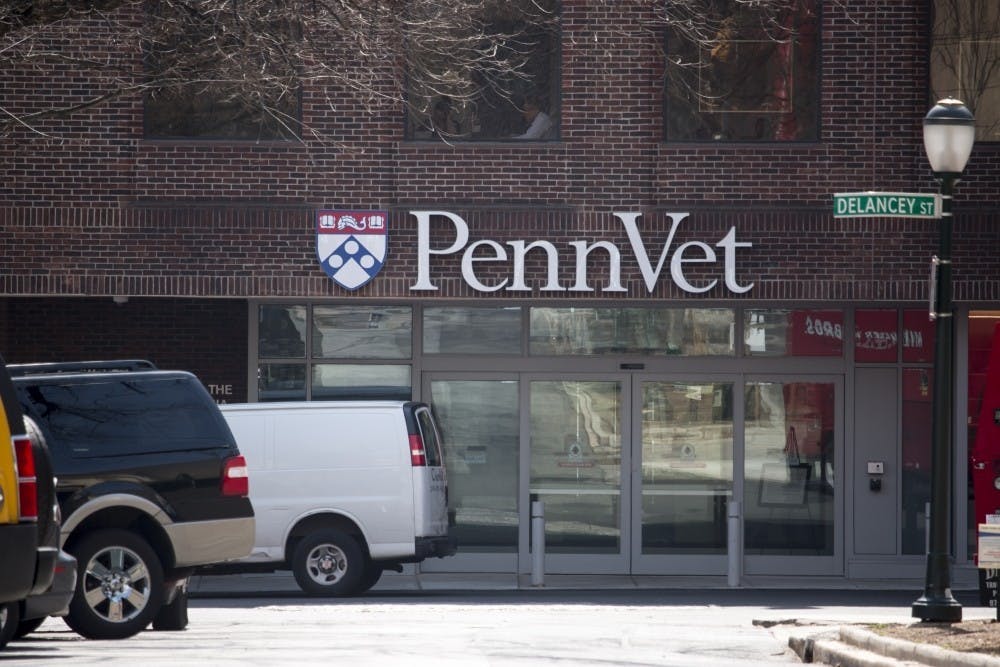
After months of uncertainty, Penn’s School of Veterinary Medicine will be receiving $30 million dollars of suspended state funding as Pennsylvania Gov. Tom Wolf signed a bill allocating $600 million to “state-related” universities.
The funding comes amid a four-month long budget stalemate between legislators in Harrisburg struggling to balance the state's ledger, close a $2 billion deficit and find funding for a $32 billion spending plan that was approved in June.
“Our flagship higher education institutions should never again be held hostage in the General Assembly’s budget process,” Wolf, a Democrat, said in a statement reported by The Philadelphia Inquirer. “These are high-impact and invaluable assets for our commonwealth’s students and economy. Our state investment helps keep these world-class universities affordable for state students.”
The bill did not pass without controversy. The $30 million dollars allocated to Penn Vet was met with objections from conservative House of Representatives members, who complained during floor debate that they did not want state funding to be allocated towards a school that identifies as a "sanctuary campus."
"Penn is and has always been a 'sanctuary' — a safe place for our students to live and to learn," Penn President Amy Gutmann wrote last November in a University-wide email. "We assure you that we will continue in all of our efforts to protect and support our community including our undocumented students."
Gutmann did not precisely use the phrase "sanctuary campus" — and in a followup interview with The Daily Pennsylvanian, she again declined to use the phrase — but various media organizations reported on her email at the time as a designation that Penn was, in essence, a sanctuary campus.
Universities with a self-proclaimed "sanctuary" status commit to blocking federal immigration officials from coming on campus or accessing administrative information without specific legal authorization.
President Donald Trump has threatened to cut federal funding to cities and universities that identify as sanctuaries.
Democratic state legislators mocked their Republican colleagues for the furor over Penn's sanctuary designation.
During the floor debate, Rep. Jordan Harris (D-Philadelphia) said of Penn Vet, “It’s a sanctuary. For dogs and cats and other animals."
Rep. Peter Schweyer (D-Lehigh County) said, "We are going to need a sanctuary for legislators who are about to lose our collective minds."
The end of budgetary negotiations ends months of uncertainty over Penn Vet's funding status.
In February, Wolf proposed a budget plan that would fully eliminate state funding to Penn, sparking outrage and confusion at Penn Vet, which typically receives about $30 million from the state. As the only veterinary school in the state, it has been receiving state funding for 133 years.
That $30 million allotment constitutes 20 percent of Penn Vet's budget.
Third year Vet School student Amy Kraus emphasized the importance of the funding for attracting new students to Penn Vet.
"So many students were scared to come to Penn Vet because the in-state funding mean so much to them, they get 10,000 dollars in stay in-state," Kraus said. "This is going to be great to keeping vets in Pennsylvania."
For other universities that depend in large part on state funding — the University of Pittsburgh, Pennsylvania State University and Temple University — the funding will stave off the prospect of mid-year tuition hikes. In-state students will also keep their discounts at public universities in Pennsylvania.
"[It's] a huge sigh of relief for Penn Vet and all the other schools to get funding," Kraus said.
The Daily Pennsylvanian is an independent, student-run newspaper. Please consider making a donation to support the coverage that shapes the University. Your generosity ensures a future of strong journalism at Penn.
Donate







